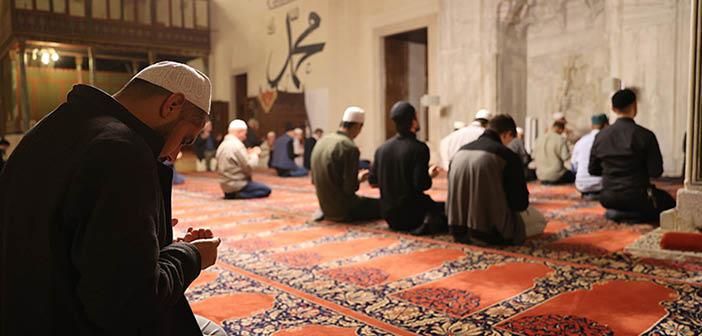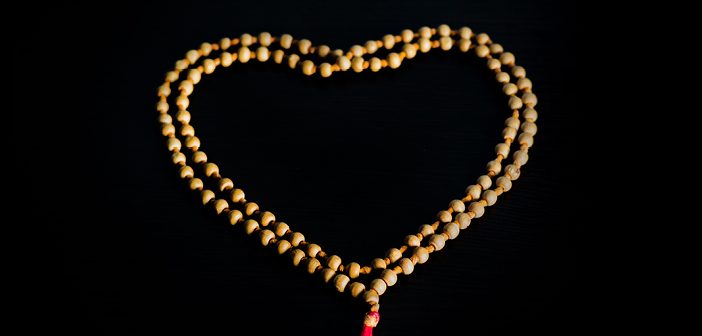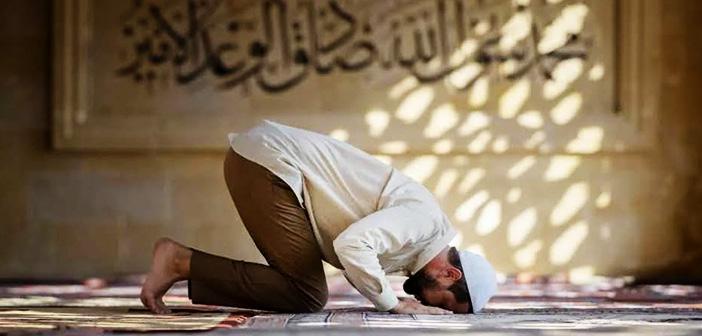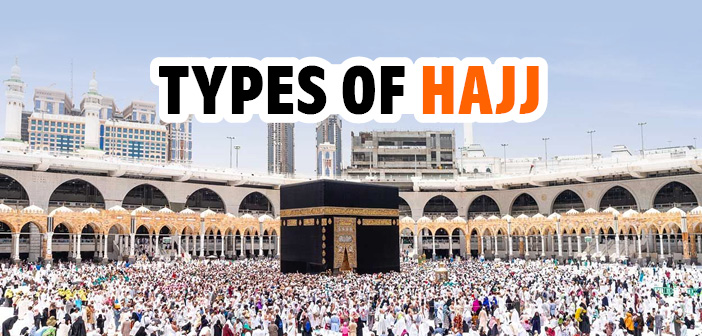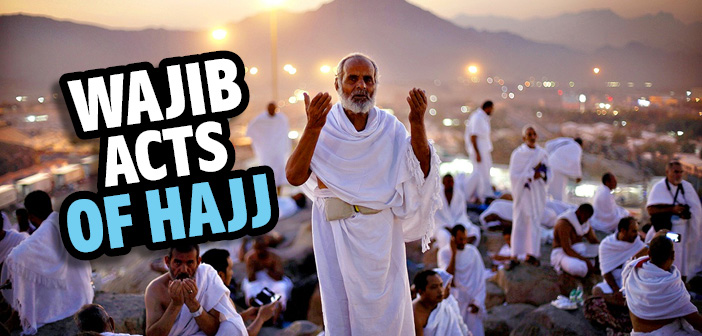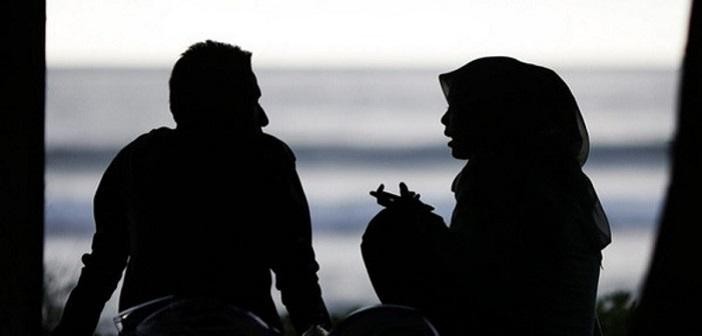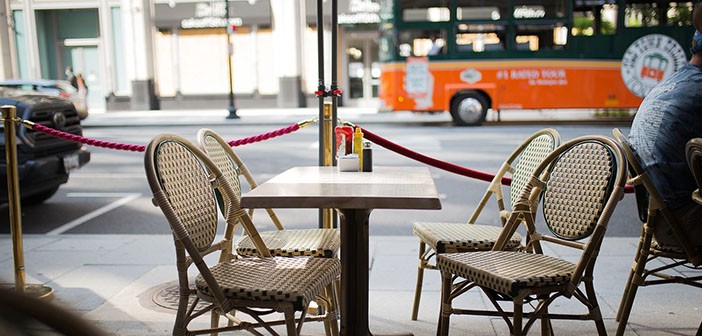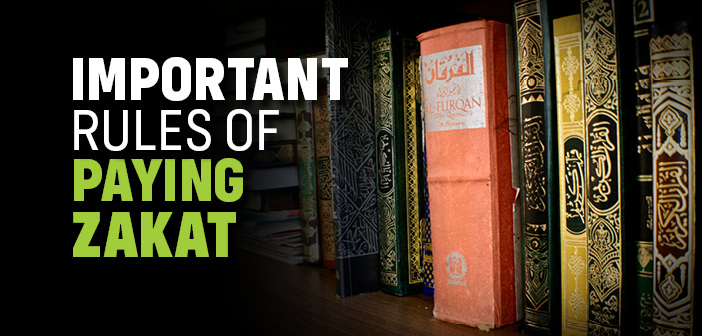
Important Rules of Paying Zakat
What should we pay attention to when paying zakat? What are the terms and rules of paying zakat?
The Poor-due is paid at 2.5 % out of our wealth once in a lunar year. The commandments of the Qur’an mostly involve a lunar year, which is 355 days. Most countries today use the solar calendar, which is 365 days hence this ten-day span should be added to the rate of Zakat. This will be approximately %2.6. In addition, in countries where high inflation exists the value of the alms due should be counted according to a stable value. In some countries there is almost a 100 %inflation rate. Hence, if we pay it according to our initial assessment of wealth but at the end of the year, the poor will receive only half of what we must pay.
Another important rule is that the alms due is paid to the individual only. Beneficiaries of donations such as mosques, schools, hospitals, are not entitled to receive this. We can help them with other kinds of charity. It must be known that the food we serve to the poor also cannot be accepted, since the poor cannot possess it.
The Qur’an clearly defines who can receive Zakat. In this way these people will be able to live like human beings without being degraded by having others look down on them. Islam also aims to prevent people from resorting to begging by providing for their essential needs.
One day a villager came to the Prophet (J) and asked for financial help. The Prophet (J) seeing that he was fit and strong asked him:
What do you have in your possession?
The man answered: I have a cotton bag and a bowl.
The Prophet advised him: Sell these two and buy an axe, cut wood from the forest and in this way you can earn your livelihood. (Abu Dawud, Kitâb al-zakât)
This Muslim followed the advice of the Prophet (J) and in a short while he escaped his poverty.
Islam is a religion of balance. It does not forbid the needy from asking for help for their needs but it encourages them to be self-sufficient. For those who make asking and begging a habit the Qur’an says:
“And of them is he who defameth thee in the matter of alms. If they are given thereof they are content, and if they are not given thereof, behold! they are enraged.” (Tauba: 9:58)
Such people lose their dignity and wish for an easy life. The Prophet(J) did not like such people and advised them to work. One day a person came to the Prophet(J) asking to receive alms. In reply, the Prophet (J) stated:
Allah the Almighty, did not leave the beneficiaries of Zakat to the will of the people, not even to the will of the prophets. He named eight classes of people and said,” if you fall into one of these groups you can take your share from the alms.” (Bayhaki, Sunanu’l-Kubrâ, VII, 6)
The Prophet (J) showed great meticulousness when he distributed Zakat. At that time the Prophet (J) personally collected it from the rich and distributed it to those groups specified in the Qur’an. Of course, this does not mean that we cannot help people in any way we like but this is not counted as the obligatory alms due. One can spend money for other good purposes as a supererogatory act of charity. The Prophet (J) rejected giving alms to those who did not deserve it, but for the distribution of supererogatory charity he did not reject anyone. Since the Qur’an commands:
“Therefore the beggar drive not away,” (Dhuha, 93:10)
The Prophet (J) states that it is the result of good moral characteristics that a Muslim should not leave those who open their hands (i.e. ask help) empty handed even if we only give one date. (Bukhari, Kitâb al-zakât)
Inspired by this hadith, my father Mûsâ Efendi, used to give charity even to those who made begging a trade and would say: “We should keep giving in order not to get too accustomed to not giving and becoming miserly.”
Islam is a very balanced religion; on the one hand it advises the rich to donate generously for the poor and other good purposes, on the other hand it advises the poor person to work hard for his sustenance and not to resort to begging. Some people might think that so much encouragement for giving might create a class of parasites who live off the charity of the rich. In order to curb such an abuse of the mercy of others, Islam allows asking the help of others only in extremely difficult conditions. Asking from others degrades one’s social status as well as dignity. Therefore the Prophet (J) conditioned many of his companions not to ask anything from anybody when he accepted their pledges.
However, it is the duty of good Muslims to search for the genuine needy people who do not like to ask people openly and are too shy to mention their financial difficulties. In the following hadith the Prophet (J) defines the poor as those who do not possess the financial capacity to meet their daily needs:
Narrated by Abu Huraira:
Allah’s Apostle said, “The poor person is not the one who goes around to people and ask them for a mouthful or two (of food) or a date or two but the poor is that one who has not enough (money) to satisfy his needs and whose condition is not known to others, so that others may give him something in charity, and who does not beg of people.” (Bukhari, Volume 2, Book 24, Number 557)
In this hadith the Prophet (J) warns us that those who go around asking people can get their essential needs hence we should concentrate on those who do not ask and patiently bear poverty. The Holy Qur’an emphasizes the significance of giving charity to those people in the following verse:
“(Charity is) for those in need, who, in Allah’s cause are restricted (from travel), and cannot move about in the land, seeking ( trade or work): the ignorant man thinks, because of their modesty, that they are free from want. Thou shalt know them by their (unfailing) mark: They beg not persistently from all and sundry. And whatever of good ye give, be assured Allah knoweth it well.” (Baqara, 2:273)
As understood well from this verse those who pay alms should investigate those to whom they wish to give Zakat. If the giver of alms due does not do this and finds out later that the receiver of the charity was not really eligible for it, then he should pay the same amount again since the first was invalid. However, if he makes a mistake after making careful research, then he is excused and does not need to repay the alms due.
Secondly, we should give the ownership of the alms to the poor; the recipient should really possess it.
When paying the alms, the following principle is important. Firstly, our own body has a right over us, then our family members and then relatives come according to their closeness in blood ties. Islamic inheritance laws regard these ties as essential rules. The ones with rights also have different priorities: the first are those with closeness in blood ties and with urgency of need.
When we choose the recipients of alms we take into consideration the urgency of their need as well as their closeness to us. If a stranger and a relative have the same degree of urgency we prefer the relative but if the stranger has a more urgent need then he is to be preferred. Preferring one’s relatives should not be taken to imply neglecting people who are really suffering in miserable conditions.
These principles show that Islam is a religion of mercy as well as a force which promotes a balanced life. The most beautiful fruit of faith in Allah is to show mercy to others. A heart that has no mercy for others, is in fact not a living heart, it is actually dead. The Basmalah (recitation of Bismillahir- Rahmanir-Raheem), the phrase that all Muslims recite when they start a new action, gives preference to the names of Allah that are related to His mercy: “In the name of Allah, Most Gracious, Most Merciful.” (Fatiha, 1:1)
The first chapter of the Holy Qur’an also brings forth the attributes of Allah’s mercy.
“Praise be to Allah, the Cherisher and Sustainer of the worlds; Most Gracious, Most Merciful” (Fatiha, 1:2-3)
In addition, the life stories of Sufis are full of merciful acts towards the creation of Allah.
The Prophet (J) in many of his sayings emphasized the significance of showing mercy in order to attain Allah’s mercy. He said in one of his hadith that our mercy should engulf all of the creation:
“Show mercy to those on earth so those who are in Heaven will show mercy to you. (Abu Dâvud, Adab, 58)
Fulfillment of the financial commandments of Islam, such as zakat, optional charity and ‘ushr are some of the most important keys in receiving this mercy.
‘USHR
Ushr is the tax that Islam obliges farmers to pay on their harvest. This is one of the commandments of Islam that is almost forgotten by most Muslim farmers. Ushr means in Arabic one tenth, that is one tenth of the harvest should be given to the poor if the harvest is realized without irrigation. If the farmer spent extra resources such as on irrigation then he only needs to distribute 5% of the harvest to the poor.
Those who do not distribute ushr are as guilty as those who do not pay their Zakat. Giving some of the harvest means giving thanks to Allah for his providence. Those who do not give the rights of the poor, the traveler and other beneficiaries of the ushr, are in fact usurping the rights of the poor regarding wealth, which is in fact, the grace of Allah.
According to a narration there was a generous man in Yemen near Sana. He had date palm gardens and other fields yielding a good harvest. Every harvest season he would abundantly distribute the ushr to the poor. When he passed away his children became greedy and said to each other:
- Our family is very large and we do not have much harvest. This year let us collect the harvest before the poor hear about it and we will keep all of it for ourselves.
Having decided this, they went to their garden the next morning. When they reached the garden the next morning, they could not recognize it and they asked each other: Did we come to right place? Alas, their garden had been destroyed and blackened by lightening
When their father had distributed the ushr tax generously, Allah had blessed the garden and had given an abundant harvest.
The following true story from the Qur’an clearly shows us the grave consequences of being miserly and not fulfilling the commandment of ushr.
Lo! We have tried them as We tried the owners of the garden when they vowed that they would pluck its fruit the next morning, And made no exception (for the Will of Allah); Then there came on the (garden) a visitation from thy Lord, (which swept away) all around, while they were asleep: So the (garden) became, by the morning, like a dark and desolate spot, (whose fruit had been gathered). And they cried out one unto another in the morning. So they went off, saying one unto another in low tones: No needy man shall enter it today against you. And in the morning they went, having the power to prevent. But when they saw the (garden), they said: “We have surely lost our way: (Qalam, 68:17-26)
Allah the Almighty teaches us a lesson that the ungrateful people who do not share with others what has been given to them by Allah will have a terrible end even in this world. Since Allah knows the secrets of the hearts, nothing is hidden from His knowledge.
Hadrat Rumi in the following verse very nicely clarifies the futility of love of wealth that causes mercilessness and greed:
“He dreams that he has wealth and is afraid of the thief who may carry off his sack of (gold).
When Death pulls his ear and makes him start up from slumber, then he falls mocking at his fears.” (Mas. III, 2640-41)
The following verse is also an indication of the guilt and pity that the miserly people will feel when they are resurrected in the Hereafter as they wake up from a deep sleep:
“And spend something (in charity) out of the substance which We have bestowed on you, before Death should come to any of you and he should say, “O my Lord! Why didst Thou not give me respite for a little while? I should then have given (largely) in charity, and I should have been one of the doers of good.” (Munâfiqûn, 63:10)
However, at that time it will be too late to fulfill the opportunity that has been given to us in this world. While this verse informs us of the terrible end for those who have nott fulfilled their financial duties towards society, it also implies that we must use the chance given to us and give generously in charity.
Spending (for the sake of Allah - infâq), is mentioned in the Qur’an more than 200 times and this emphasis shows that a good believer is the one who dedicates his wealth and his life to Allah. The Prophet (J) used to meet people from Madinah secretly when he started preaching Islam. Twice he met the groups coming from Madinah and took pledges from them. In the second Aqaba pledge meeting, when Abdullah b. Rawaha asked the Prophet (J):
“- O Prophet what do you lay down as conditions in Allah’s name and for yourself in order to accept our pledge.”
“- My condition, in the name of Allah, is that you should worship Him, and not associate partners with Him. My conditions are that you will protect me as you protect your own lives and properties.”
The people of Madinah asked again:
“If we do that what are our rewards?”
The Prophet (J) answered: “Paradise!”
Being very happy with the reward, the people of Madinah said: “What a good and profitable bargain. We will never break our promise and we never wish that others break their promises to you (on these conditions).” (Ibn Kathir, Tafsir, II, 406)
Upon this conversation, Allah the Almighty, sent down the following verse:
“ Lo! Allah hath bought from the believers their lives and their wealth because the Garden will be theirs: they shall fight in the way of Allah and shall slay and be slain. It is a promise binding on Him in the Torah and the Gospel and the Qur’an. Who fulfilleth His covenant better than Allah? Rejoice then in your bargain that ye have made, for that is the supreme triumph.” (Tawba, 9:111)
How does Allah buy our lives and properties? Martyrdom; giving our life for the sake of Allah is, as a matter of fact, selling it to Allah. Sumayya, the first person who was killed for her belief in Islam gave her life freely in the path of Allah. Thus, she bought her share in paradise and she occupied the throne in the hearts of believers, waiting for Judgment Day in order to receive her great reward. Following her example, we should turn to charity with our full heart.
In the battle of the Dardanelles (Gallipoli), the Turkish army even did not have enough bullets but by freely sacrificing their lives, they defeated the enemy. There are many other examples in history, that those who sacrifice their lives and wealth in the way of Allah will eventually become victorious.
The selling of wealth to Allah is achieved through giving charity. Allah the Almighty, counting the attributes of Allah-fearing people says: “This is the Book; in it is guidance sure, without doubt, to those who fear Allah; Who believe in the Unseen, are steadfast in prayer, and spend out of what We have provided for them.” (Baqara, 2:2-3)
Charity is of many kinds. Charity begins with giving out of what is at hand. Giving even half of a date is considered as an act of charity and even this small amount of charity protects the believer from hell-fire. The Prophet (J) considers all Muslims as rich in the sense that there is something that all Muslims can give in one way or another. The Prophet (J) informs us that glorifying Allah, commanding what is good, helping those who suffer from injustice, counselling the believers, giving happiness to the hearts of Muslims, to remove things from the road that are harmful to any passers-by and so on, are all considered as acts of charity. The real richness according to Islam lies in the heart of the Muslim. People are only as rich as they feel. The smile of those who are rich in their hearts is also considered as a charitable act. Those who are rich in their hearts are happy and distribute happiness to their friends. What charity can be better than giving happiness to those who are around us? On the other hand, there is no cure for those who are poor in their hearts. In other words, real richness does not lie in possessing much wealth; it is the richness in the heart. Since the real Muslims are rich in their hearts, they give charity from what they possess. Charity is the perfect manifestation of a believer’s sensitivity to his feelings of mercy and self-sacrifice.
The lives of the companions of the Prophet (J) are full of such examples. One of the most striking examples of self-sacrifice is manifested in Hadrat Omar’s life. When his army opened Jerusalem to Islam, he set off together with his slave to receive the keys of the city. They were riding the camel by taking turns. When they approached the city it was the slave’s turn to get on the camel. The slave did not want to enter Jerusalem riding while his master was walking. However, Omar who was rich in heart insisted that the slave should use his turn, so Omar entered the town on foot.
Another example can be seen in the life of Hadrat Ali, the fourth caliph and son-in-law of the Prophet (J). All in the family were fasting but they had very little food to break their fast. However, a poor person came to them in the evening and asked for some food. They gave all their food to this poor person and all went to sleep hungry. The next day near sunset when the time to break fast approached an orphan arrived asking for some food. Again they gave their food. The following day they finally had some food to eat but a slave came asking for food. Performing the same charity again they showed the highest example of self-sacrifice and charity.
This generosity of heart was shown by the companions even with their last breath. At the battle of Yarmuk, a man was offering water to three companions who were injured in the fight. Each one of them refused to drink and offered the water to his wounded compatriot hence the water circulated among them but none of them drank since they all passed away before the water came back.
These are the highest examples of giving charity and called îsâr in Arabic. Îsâr is more than giving charity, it is the preference of others over your rights; it is to give what you need to others. This kind of charity is almost non-existent in modern societies today. People simply do not understand the significance of this much generosity. However, if we contemplate what the world would be like if every individual considered the well being of others more than his own, we would see that we would be able to live the life of paradise in this world. Therefore, we should encourage ordinary Muslims to give their obligatory alms due and to increase this amount even more as voluntary charity. In addition, we should carry out the distribution of charity through institutions and organizations that work professionally. This can be achieved through training sincere people who are hard working and self-sacrificing. It is also a duty incumbent upon the Ummah (Muslim nation) to establish hospitals, dormitories for those who have no accommodation and soup kitchens.
In short, giving charity generously should be an essential characteristic of a believer. The following verse clearly considers giving charity as an inseparable feature of a Muslim:
“Those who spend (freely), whether in prosperity or in adversity; who restrain (their) anger, and pardon (all) men; - for Allah loves those who do good.”(Al-i Imran 3:134)
Jafar as-Sâdik, who is an important figure from the offspring of the Prophet’s grandsons, manifested all the qualities of a believer that are mentioned in the above verse. He had a servant that looked after the housework. One day he brought soup to Jafar (may Allah be pleased with him) but spilled it on him. As his entire garment was spoiled by the soup, Jafar looked directly at him. The slave realizing his displeasure said:
“O my Master! Allah the Almighty describes the believers in the Qur’an as those who restrain their anger, and recited the verse above.”
Upon hearing it, Jafar said: “I have restrained my anger.”
This time the slave read the second part of the verse saying: “Allah the Almighty, states that good believers pardon people’s mistakes”.
Jafar said: “I have forgiven your mistake”.
Upon this the slave stated: “Allah states in the Qur’an that He loves those who give with benevolence”.
Upon hearing this nice answer, Jafar said: “You can go now as a free man, I have freed you”.
In that way he applied all the commandments of the verse in his life and set a good example for the rest of the Ummah.
As the Prophet (J) stated, a sinful woman was forgiven due to her mercy for a thirsty dog by giving it water. She attained paradise due to this simple of act of mercy while on the other hand, another woman was destined for hell for her unmerciful act to a cat, by walling it up and allowing it to starve. These are important examples and indications as to how a believer should behave towards others. A believer should be very merciful, self-sacrificing, and generous to others.
The real generosity, which will be acceptable in the sight of Allah, is the one that one gives from one’s valuable and beloved possessions. If one gives charity from valueless things, this will not be regarded as worthy.
In the Time of Happiness, (the age of the Prophet (J)) people accommodated the poor companions in the Mosque. They were called the People of the Bench and their sole duty was to study Islam, hence they could not earn their livelihood. The Prophet (J) and his rich companions would supply their needs including food. Some of the companions sent them spoiled dates as food. The People of the Bench were obliged to eat these spoiled dates due to excessive hunger. Upon this sad incident the following divine warning arrived from Allah the Almighty:
“O ye who believe! Give of the good things which ye have (honorably) earned, and of the fruits of the earth which We have produced for you, and do not even aim at getting anything which is bad, in order that out of it ye may give away something, when ye yourselves would not receive it except with closed eyes. And know that Allah is Free of all wants, and worthy of all praise. (Baqara: 2, 267)
In another verse, Allah the Almighty informs us that in order to be close to Allah we should give charity from our beloved possessions.
“By no means shall you attain to righteousness until you spend (benevolently) out of what you love; and whatever thing you spend, Allah surely knows it.” (Al-i Imrân, 3:92)
When this verse was revealed the companions of the Prophet (J) started racing with each other to give their favorite and most loved possessions. The companions who were listening to the Prophet (J) felt this verse in the depths of their inner worlds. They were reckoning themselves about being able to give what they liked the most. Suddenly a companion stood up. This companion whose face was bright with the light of faith was Abu Talha (may Allah be pleased with him). He owned a big garden with six hundred date trees in it that was very close to the Prophet’s Masjid and he loved that garden very much. He used to invite the Prophet (J) to his garden often and get his blessing.
Abu Talha said: “O Messenger of Allah! The most beloved to me in my property is this garden in the city that you also know. Right at this moment, I give it to the Messenger of Allah for the sake of Allah. You can dispose it the way you like and give it to the poor.” After he finished his words he went to the garden to carry out this beautiful decision. When Abu Talha reached the garden he found his wife sitting under the shade of a tree. Abu Talha did not enter the garden.
His wife asked: “O Abu Talha! Why are you waiting outside? Come on in!” Abu Talha said: “I can not enter inside, you should also take your belongings and leave.” Upon this unexpected answer his wife asked in surprise: “Why, O Abu Talha? Isn’t this garden ours? “No, from now on this garden belongs to the poor people of Madina,” he said and gave the news of the good tidings in the verse and told excitedly about the charity he made.
His wife asked: “Did you give it on behalf of the two of us or just yourself?”
He answered: “On behalf of us.” He heard the following words from his wife in peace: “May Allah be pleased with you, O Abu Talha! I used to think about the same thing when I saw the poor people around us, but I could not find the courage to tell you. May Allah accept our charity. I am leaving the garden and coming with you, too!” It is not difficult to predict the climate of happiness that would surround the world if this moral quality was rooted in the souls of people.
The commentators of the Qur’an explain the Arabic word al-Birr, meaning righteousness, the highest point of charity, as paradise, the mercy of Allah and His pleasure with us. The same word is explained in another verse in the Qur’an:
“It is not righteousness that ye turn your faces towards the east or west; but it is righteousness- to believe in Allah and the Last Day, and the Angels, and the Book, and the Messengers; to spend of your substance, out of love for Him, for your kin, for orphans, for the needy, for the wayfarer, for those who ask, and for the ransom of slaves; to be steadfast in prayer, and practice regular charity; to fulfill the contracts which ye have made; and to be firm and patient, in suffering and adversity, and throughout all periods of panic. Such are the people of truth, the Allah-fearing. (Baqara, 2:177)
Hence, those who attained to the level of al-Birr in giving charity in reality attained all other good qualities as well. Emphasizing this fact the Prophet (J) stated:
“Whoever applies this verse in his life Allah will be granted perfection in his faith.” (Nasafi, Madârik al-Tanzîl, I, 249)
In these days, brotherhood and solidarity have been lost, on the contrary hatred and enmity has increased in the society due to ignoring the problems of the poor. In order to fight these negative feelings we need to declare a campaign of charity and donation. We must imagine that we could be in the shoes of the needy. Hence, giving charity to the poor is in fact to give thanks for the favors of Allah upon us. The great Sufi Aziz Mahmud Hudayi invited even the kings to the campaign of giving charity. In his letter to Sultan Selim the Third he wrote:
“Like your grandfather Suleiman the Magnificient who brought the water to the people of Istanbul from faraway springs (called Istirancalar) you must supply wood to the poor this winter.”
Fighting against poverty and the campaign to raise charity is not only important for us but it is also very important for our family. As we train our youngsters to perform their prayers at an early age, in the same vein, we must train our children in order for them to give charity and to share the sorrows of others. This is an obligation that we should fulfill when our children are young, otherwise they will not be able to give charity as an adult. They should grow up keeping in mind that wealth in reality belongs to Allah.
Those who want to be upright in Islam should never stop giving charity in the path of Allah even if their means are restricted. We should shoulder those who are in a miserable condition or at least we should pray for their well-being. Even sharing their sorrows emotionally is considered as an act of worship in the sight of Allah the Almighty. We should also keep in mind that in these times the greatest act of charity is to train people who will work in the institutions of charity and spend for these kinds of institutions. As a great thinker once said:
“The difference between the developed and undeveloped countries is a bunch of well educated people”
The world is really thirsty for these kinds of educated people. If Islam is in a horrible condition and Muslims are suffering from injustices the reason is that we do not have this high quality of people. We must shake laziness off from ourselves as we start to struggle to exemplify what it is to be a true Muslim. Doing this is possible only if sacrifice for the good of the people.
Establishing charitable foundations institutionalizes this sacrificing and giving in charity. Establishing foundations means to dedicate wealth for the service of Allah and making it eternal. The perfection of Islam can be reached through showing mercy and love towards his creation with a smiling face. To sacrifice both our wealth and lives in the way of Allah is, as a matter of fact, to buy paradise.
One’s wealth and children possess the highest capacity to prevent one from the path of Allah. In order to warn from these dangers Allah the Almighty states in the Qur’an:
“Your possessions and your children are only a trial, and Allah it is with Whom is a great reward.” (Taghabun, 64:15)
“O you who believe! let not your wealth, or your children, divert you from the remembrance of Allah; and whoever does that, these are the losers. (Munafiqûn, 63:9)
“Therefore be careful of (your duty to) Allah as much as you can, and hear and obey and spend, it is better for your souls; and whoever is saved from the greediness of his soul, these it is that are the successful.” (Taghabun, 64:16)
“If ye lend unto Allah a goodly loan, He will double it for you and will forgive you, for Allah is Responsive, Clement,” (Taghabun, 64:17)
As may be understood from the above verses, according to Islam the poor and the weak are a trial for the rich in terms of whether they will fulfill their duties or not. The doors of Paradise will be open for the rich through the prayers of the poor. Through charity, wealth is not allowed to be a cancerous cell in the body. Hence, the foundations of charity are monuments of mercy and the best places where charity is distributed. They are a bridge between the rich and the poor. Through the existence and abundance of these kinds of institutions the feelings of resentment and hatred between the rich and the poor will not find a fertile soil for growth.
It is worth noting that our ancestors, the Ottomans, established hundreds of thousands of charitable foundations. Although many of them have been plundered in recent history, nevertheless 26,798 still are standing on their own. The Ottomans, who practiced Islam sincerely, demonstrated to the world the endless mercy of Islam. This mercy was so limitless that it not only included their fellow human beings but also reached to the animal kingdom. Some of these foundations are dedicated to animals that are injured or could not migrate to their habitats in winter months. The network of foundations surrounded the society and treated all kinds of social problems.
In other words, charitable foundations are manifestations of the responsibility that Muslims feel towards the society. They are an outcome of the belief that we should love creation for the sake of Creator. Allah the Almighty, named all the facilities of life as a trust given to man for a limited period. Wealth, offspring, and health are all given to man as a trust and they should be used in the way of Allah. If they are used in His way they will bring blessings and good rewards in the Hereafter.
When the companions of the Prophet (J) heard the commandment of Allah with regards to giving charity they brought whatever they had to the Prophet (J). The verse “Do they not know that Allah accepts repentance from His servants and takes the alms, ” (Tawba, 9:104) gave them the greatest motivation for giving charity wholeheartedlly.
We should also realize that charity may not only be given materially. Whatever Allah has given us should be used in the way of Allah. The companions of the Prophet (J) donated their lives and their wealth to invite people to Islam. They reached the far ends of the world in their time in order to spread the religion of Allah. Qusam son of Abbâs (the prophet’s uncle) and Muhammad son of Uthman (Caliph and son-in-law of the Prophet) gave the best examples of personal charity in spending their lives in order to spread Islam. They traveled as far as Samarqand to spread the light of Islam. As a result of their sacrifice, this area has produced some of the greatest scholars of Islam such as Bukhari, Imâm Qâsânî, Imâm Tirmidhi, Shâh Naqshbend, and many others.
Similarly, today the greatest charity is to practice Islam fully and wholeheartedly to present it as a way of life.
Source: Osman Nuri Topbaş, ISLAM SPIRIT AND FORM, Erkam Publications




